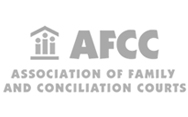Blog
Consensual Dispute Resolution in Chicago Divorce Cases
Divorce proceedings can take many forms – every case is different and every party to a divorce is different. Whether the issues involve complicated or straightforward assets, several children or no children at all, there are several different methods that the parties can employ to cross the finish line, and frequently, a single divorce proceeding involves more than one of these methods before the case is over.
By its very nature, a divorce is a legal proceeding presided over by a judge, who is the final decision-maker. If the parties cannot come to an agreement on any issue, it will ultimately be decided by the judge after the parties each present their case. However, there are several other ways that some or all of the issues in a divorce may be resolved. Knowing the different avenues available to parties by which issues may be addressed, resolved, and/or adjudicated is essential to understanding the path that your divorce may take – whether by your choice or otherwise. Furthermore, understanding the nature and goal of each possible process will help formulate your and your spouse’s approach to the divorce, as well as your overall expectation for the process and outcome.
Alternative Dispute Resolution
For example, alternative dispute resolution (ADR) methods give parties an opportunity to settle a pending dispute by means other than litigation. It is thought that in addition to removing parties from the courtroom, these processes are also more cost-effective than prolonged litigation. These methods include, but are not limited to, mediation and arbitration.
Mediation is most common in the divorce context, and involves a neutral third party, a mediator, who attempts to help the parties reach an agreement on disputed issues. Accordingly, the goal of mediation in the divorce context is to reach an agreement on all outstanding issues (whether financial, child-related, or both), guided by the mediator. Arbitration, in contrast, involves an out-of-court, trained third party other than a judge to whom the parties agree to submit their issues for a final, binding determination. Arbitration will result in a final decision on any disputed issues by the arbitrator, which is then given effect by the judge.
Often times, these are court-ordered procedures – at some point in the litigation, parties may be ordered to engage in these methods of ADR by the judge, over the objection or without the agreement of one or both parties. The parties then engage in a parallel process while the divorce is pending, and their attorneys often continue to participate as their respective advocates.
In Illinois, judges have the power to order parties to attend mediation in several different circumstances. For divorce proceedings in which a minor child is involved, the Illinois Marriage and Dissolution of Marriage Act provides that “the court shall order mediation to assist the parents in formulating or modifying a parenting plan or in implementing a parenting plan unless the court determines that impediments to mediation exist.” It is also within the court’s discretion whether impediments to mediation exist, which are defined by the Cook County Rules of Court to include “without limitation, past or present family violence or abuse, mental or cognitive impairment, alcohol abuse, or chemical dependency,” so mediation may be required despite one or both parties’ resistance. The court also has the power to determine which party or parties shall pay the costs associated with mediation, and in what proportion.
Judges in Cook County in particular also have the authority to order involvement in alternative dispute resolution methods, particularly mediation, to address financial issues. In Cook County, an order of mediation is discretionary for financial issues, discovery disputes, and any contested domestic relations issues other than certain child-related issues for which mediation is mandatory. Again, neither party is required to consent to mediation of these financial issues; attendance can be compelled by the court over objection. Notably, however, the Cook County Rules of Court do provide that the judge shall consider the parties’ financial resources prior to ordering mediation.
Ultimately, ADR methods temporarily take the parties out of the forum of the public court in an effort to settle their disagreements, which often proves to be both fruitful and cost-effective, ultimately producing a comprehensive, lasting agreement for parties that is incorporated into a final divorce decree. However, it should be noted that the adversarial nature of the proceedings is often preserved and continues through the ADR process. When participation is ordered by the court, the parties’ divorce has already been pending, litigation has ensued, and the parties are pitted against each other. The goal is for an ADR method to solve the issues outside of court, which is generally cost-effective, although it does not necessarily take the dispute out of the adversarial framework. Should the ADR process break down, a court case is already pending and litigation can be resumed nearly instantaneously. This fact often colors the ADR process, influencing the parties’ positions as they participate.
Consensual Dispute Resolution
In contrast, consensual dispute resolution, or CDR, is a process by which spouses jointly elect to negotiate the terms of their divorce in a collaborative manner, together addressing the issues that must be decided in order to formalize their separation. This process originates prior to the filing of a divorce, when the parties reach an initial consensus to settle their issues in full without the involvement of a judge or sole decision-maker.
The collaborative process involves several professionals; while attorneys for the parties (who have been specially trained in collaborative law) can be involved to advise their respective clients throughout the process, a case has not been filed and should the collaborative process break down, the attorneys who participated in CDR typically cannot represent the parties in the subsequent legal proceeding.
There are additional professionals involved to guide the parties, carefully selected to address the issues present in each particular case. For example, there is typically one or more financial professionals involved, depending on the nature, size and complexity of the marital estate (i.e., the assets to be divided), and a child specialist to work with the parties on any issues related to the parenting time schedule or the allocation of parental responsibility between them. These professionals act as guides throughout the process, each offering his or her expertise with the goal of giving effect to the parties’ wishes.
At the outset of the collaborative process, parties enumerate their specific goals, which become the roadmap for the entire process. The intention of CDR is to inspire a more team-like, holistic approach to the dissolution of the marriage and family as they work toward their goals, which ideally produces an agreement that the parties are more apt to follow because it is of their own creation from start to finish. Once an agreement is reached, the involved attorneys convert the agreement into legally binding documents that will eventually be entered in court at the one and only required court appearance, the purpose of which is simply to give legal effect to the documents and finalize the process.
As the CDR name suggests, the success of this process is wholly dependent on the consent of the parties. This movement is and has been gaining traction within the Chicago divorce community as a truly consensual dispute resolution method – one as free from the adversarial nature of litigation as possible.
Let WARD FAMILY LAW, LLC help – whatever the process!
WARD FAMILY LAW’s experienced attorneys are ready to assist you in whatever form your Chicago divorce takes – whether you and your spouse have come to an agreement to engage the collaborative process, mediation or you believe litigation will be necessary, we are here to advise you of your options, guide you, and ultimately achieve the best result possible for you and your family.




Request
a Consultation

If you would like an attorney to contact you for a free consultation, please complete this form.
